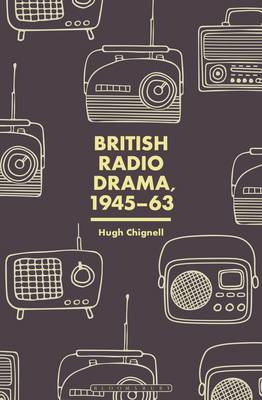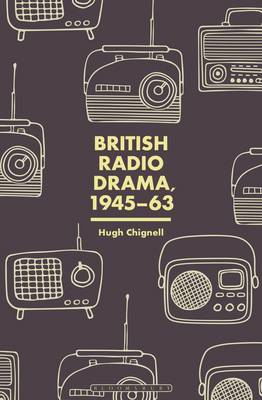
Je cadeautjes zeker op tijd in huis hebben voor de feestdagen? Kom langs in onze winkels en vind het perfecte geschenk!
- Afhalen na 1 uur in een winkel met voorraad
- Gratis thuislevering in België vanaf € 30
- Ruim aanbod met 7 miljoen producten
Je cadeautjes zeker op tijd in huis hebben voor de feestdagen? Kom langs in onze winkels en vind het perfecte geschenk!
- Afhalen na 1 uur in een winkel met voorraad
- Gratis thuislevering in België vanaf € 30
- Ruim aanbod met 7 miljoen producten
Zoeken
Omschrijving
British Radio Drama, 1945-1963reveals the quality and range of the avant-garde radio broadcasts from the 'golden age' of British radio drama. Turning away from the cautious and conservative programming that emerged in the UK immediately after World War II, young generations of radio producers looked to French theatre, introducing writers such as Samuel Beckett and Eugene Ionesco to British radio audiences. This 'theatre of the absurd' triggered a renaissance of writing and production featuring the work of Giles Cooper, Rhys Adrian and Harold Pinter, as well as the launch of the BBC Radiophonic Workshop.
Based on primary archival research and interviews with former BBC staff, Hugh Chignell places this high-point in the BBC's history in the broader context of British post-war culture, as norms of morality and behavior were re-negotiated in the shadow of the Cold War, while at once establishing the internationalism of post-war radio and theatre.
Based on primary archival research and interviews with former BBC staff, Hugh Chignell places this high-point in the BBC's history in the broader context of British post-war culture, as norms of morality and behavior were re-negotiated in the shadow of the Cold War, while at once establishing the internationalism of post-war radio and theatre.
Specificaties
Betrokkenen
- Auteur(s):
- Uitgeverij:
Inhoud
- Aantal bladzijden:
- 200
- Taal:
- Engels
Eigenschappen
- Productcode (EAN):
- 9781501377228
- Verschijningsdatum:
- 25/02/2021
- Uitvoering:
- Paperback
- Formaat:
- Trade paperback (VS)
- Afmetingen:
- 152 mm x 229 mm
- Gewicht:
- 267 g

Alleen bij Standaard Boekhandel
+ 145 punten op je klantenkaart van Standaard Boekhandel
Beoordelingen
We publiceren alleen reviews die voldoen aan de voorwaarden voor reviews. Bekijk onze voorwaarden voor reviews.









